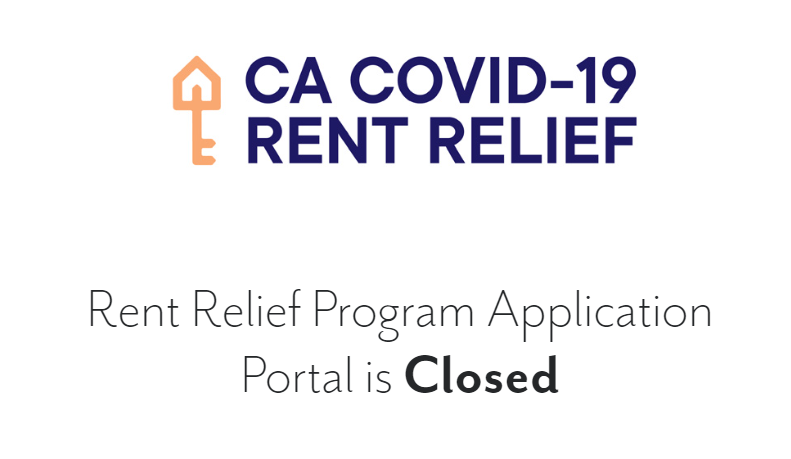
The agreement requires the California Department of Housing & Community Development to give pending and denied applicants a fair chance to receive Covid-19 rental assistance
LOS ANGELES – June 5, 2023 – A landmark settlement has been reached in a case brought by tenants’ rights advocates alleging that the California Department of Housing & Community Development (HCD) unconstitutionally operated the state’s Covid-19 Emergency Rental Assistance Program (ERAP or Housing is Key), which has led to qualified applicants missing out on the assistance they were promised after the pandemic destroyed many Californians’ livelihoods. More than 100,000 households are still waiting for a decision on their applications—and many of them are being served with eviction notices and being harassed by their landlords for rent they still owe. The settlement agreement will offer a renewed chance for applicants who remain in limbo to receive Covid-19 rental assistance, which remains essential to supporting and stabilizing families as the housing and homelessness crisis worsens in California.
California’s Covid-19 Emergency Rental Assistance Program was created to provide direct assistance to low-income families struggling to pay rent during the pandemic. The Alliance of Californians for Community Empowerment (ACCE Action), Strategic Actions for a Just Economy (SAJE), and PolicyLink—represented by Western Center on Law & Poverty, Public Counsel, the Legal Aid Foundation of Los Angeles, and Covington & Burling LLP—sued HCD in June 2022 for several systemic failures in the program, including a confusing application process that led eligible tenants to be wrongfully denied assistance.
“The rental assistance program was intended to provide housing stability for low-income tenant families who were impacted by Covid-19, but delays and dysfunction left far too many eligible families facing eviction because they could not access this critical assistance,” said Madeline Howard, Senior Attorney at Western Center on Law & Poverty. “We are hopeful that this settlement will create an opportunity for these tenants to finally receive the help they need.”
“This settlement will mitigate some of the worst long-tail impacts of the Covid-19 pandemic on our local communities, and Covington is very proud to partner with our co-counsel and clients in this important work,” said Neema Sahni, Partner at Covington & Burling LLP.
California identified more than $6 billion in rental assistance from the state and federal government for the Housing is Key program, which came at a critical time and should have made a profound difference for the hundreds of thousands of families impacted by the economic fallout of the pandemic. More than half a million households applied to the program. Thus far, HCD has denied nearly 30 percent of applicants, according to an analysis of program data conducted by the National Equity Atlas (a research partnership between PolicyLink and the USC Dornsife Equity Research Institute). The vast majority of those denied (93 percent) have incomes below 80 percent of the area median income—the income threshold to be eligible for the program. Tenants did not receive any meaningful explanation of why they were being denied the help they needed to avoid eviction, and many had difficulty accessing the appeal process.
“We filed this case because we started to see a sharp rise in denials for tenants we knew were eligible, including clients of legal aid organizations across the state, who were relying on rental assistance to stay housed and off the streets,” said Faizah Malik, Senior Supervising Attorney at Public Counsel. “With the settlement of the case, many thousands of families will have another chance to receive the aid that they were promised.”
As part of the settlement, HCD has agreed to take several steps to improve its process for the remaining ERAP applications, including:
- Providing tenants who are going to be denied all or part of the assistance they requested with a detailed explanation of the reason for denial, so they can address issues with the application and have a fair opportunity to appeal;
- Ensuring that tenants subject to “recapture” of rental assistance funds have a fair opportunity to challenge the state’s decision;
- Providing better access to the appeal process;
- Expanding funding to the Local Partner Network, which will assist tenants with navigating their pending applications and appeals;
- Conducting an audit of prior denials to correct wrongful denials of assistance; and
- Providing greater transparency about who is receiving rental assistance and who is not, with data about the race, ethnicity, and zip code of people denied assistance.
Tenants who have been waiting for a decision on their applications will receive an update in the coming months and should regularly check their email, application portal, and postal mail for notifications. Tenants who have been evicted or moved since they applied for rental assistance should contact the Housing is Key program to update their contact information and ensure they receive any important notices. Those who receive a denial will have 30 days to file an appeal.
“SAJE has assisted hundreds of tenants on their rent relief applications, and many of the most vulnerable tenants are still in the waiting pool, confused and scared,” said Cynthia Strathmann, Executive Director of SAJE. “We hope that tenants now will finally get the information they need to get their applications approved so they can pay off their pandemic rent debt, a major source of continued stress and harassment.”
“This case brought us in contact with so many families who were evicted or facing eviction because of the Covid-19 pandemic,” said Jonathan Jager, LAFLA Staff Attorney. “We encourage any renters who are still waiting for an ERAP decision to not give up hope. Keep your contact information up to date with Housing is Key and reach out to the Local Partner Network if you have questions about any communications you receive from the program.”
Rent debt across California remains at crisis levels: an estimated 688,000 households across the state remain behind on rent, according to the National Equity Atlas. Altogether, they owe nearly $2.6 billion in total rent debt, with the average rent debt per household hovering around $3,700. The vast majority of these renters are low-income people of color who have suffered job and income losses due to the pandemic. This persistent and mounting debt further illustrates the importance of this settlement to keeping families in their homes and curbing the surge of evictions that have followed the end of pandemic eviction moratoriums.
“I lost everything I had because of issues with the rent relief program. Right before the pandemic, I put my life’s savings into opening a restaurant. I was then forced to close down, and as a result lost my income, my business, and my entire savings trying to hold on to what I had. I applied for rent relief and at first was denied without explanation. Then I appealed, got approved, but have now been waiting for nearly 2 years for the money to come through. I tried calling the program for help dozens of times but got no help. A year into waiting for the funding, my landlord pressured me to move out, and I became homeless. Thousands of lives have been destroyed because of the failure to get the money out to families that they are due. I am hopeful that this settlement will finally bring us closer to some relief,” said Blake Phillips, former resident of Los Angeles.
“In creating the Covid-19 rent relief program, the state promised to cover 100 percent of pandemic rent debt for tenants in California. We brought this case to ensure that the state lived up to that promise so hundreds of thousands of Californians could survive the pandemic,” said Jefferson McGee, State Board Chair of the Alliance of Californians for Community Empowerment (ACCE). “Housing is health and housing is a human right and we will keep fighting to make that a reality for our members.”
More information on the details of the settlement can be found at www.CARentRelief.org.
###
About Western Center on Law & Poverty
Western Center on Law & Poverty fights in courts, cities, counties, and in the Capitol to secure housing, health care, and a strong safety net for Californians with low incomes, through the lens of economic and racial justice.
About Public Counsel
Public Counsel is a nonprofit public interest law firm dedicated to advancing civil rights and racial and economic justice, as well as to amplifying the power of our clients through comprehensive legal advocacy. Founded on and strengthened by a pro bono legal service model, our staff and volunteers seek justice through direct legal services, promote healthy and resilient communities through education and outreach, and support community-led efforts to transform unjust systems through litigation and policy advocacy in and beyond Los Angeles.
About Legal Aid Foundation of Los Angeles
Legal Aid Foundation of Los Angeles (LAFLA) is a nonprofit law firm that seeks to achieve equal justice for people living in poverty across Greater Los Angeles. LAFLA changes lives through direct representation, systems change, and community empowerment. It has five offices in Los Angeles County, along with four Self-Help Legal Access Centers at area courthouses, and three domestic violence clinics to aid survivors.
About Covington & Burling LLP
In an increasingly regulated world, Covington & Burling LLP provides corporate, litigation, and regulatory expertise to help clients navigate their most complex business problems, deals, and disputes. Founded in 1919, the firm has more than 1,300 lawyers in offices in Beijing, Brussels, Dubai, Frankfurt, Johannesburg, London, Los Angeles, New York, Palo Alto, San Francisco, Seoul, Shanghai, and Washington. Since its founding, Covington has demonstrated a strong commitment to public service. The firm is frequently recognized for pro bono service, including 11 times being ranked the number one pro bono practice in the U.S. by The American Lawyer.
About the Alliance of Californians for Community Empowerment Action (ACCE Action)
The Alliance of Californians for Community Empowerment (ACCE) Action is a grassroots, member-led, statewide community organization working with more than 16,000 members across California. ACCE is dedicated to raising the voices of everyday Californians, neighborhood by neighborhood, to fight for the policies and programs we need to improve our communities and create a brighter future.
About Strategic Actions for a Just Economy (SAJE)
SAJE is a 501c3 nonprofit organization in South Los Angeles that builds community power and leadership for economic justice. Founded in 1996, SAJE focuses on tenant rights, healthy housing, and equitable development. SAJE runs a regular tenant clinic, helps connect local residents to jobs, organizes for tenant rights, and fights for community benefits from future development through private agreements and public policies. We believe that everyone, regardless of income or connections, should have a voice in creating the policies that shape our city, and that the fate of city neighborhoods should be decided by those who live there in a manner that is fair, replicable, and sustainable.
About PolicyLink
PolicyLink is a national research and action institute advancing racial and economic equity by Lifting Up What Works®. With local and national partners, PolicyLink works to ensure all people in America — particularly those who face the burdens of structural racism — can participate in a just society, live in a healthy community of opportunity, and prosper in an equitable economy. PolicyLink is guided by the belief that the solutions to the nation’s challenges lie with those closest to these challenges.

